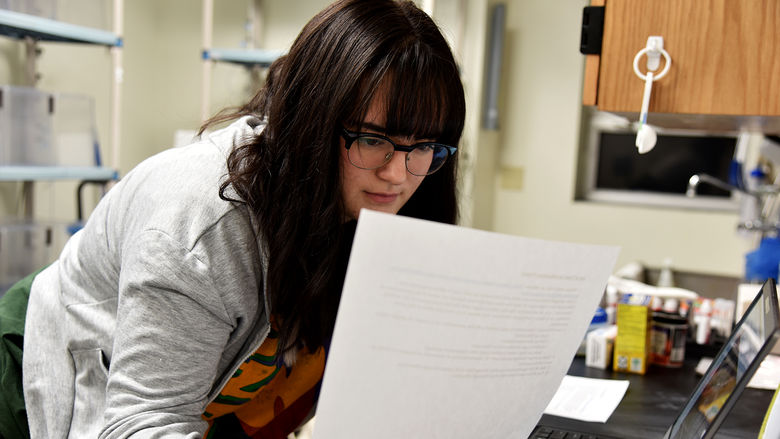15 Best Practices for Employer Internship Programs
Recruiting Student-Interns
Post your opportunity on Nittany Lion Careers.
This option will allow students university-wide to see and apply for your internship opportunity.
Please contact the Internship Coordinator with questions or to discuss creating an internship opportunity for your company or organization.
Complete and Submit Internship Evaluations
Instructions for submitting internship evaluations will be sent to you via email.
Sample Evaluations
View the content of the evaluations to be submitted by students and host site supervisors throughout a student's internship. Actual evaluations are password-protected and viewable only by the student's faculty supervisor and the internship coordinator.
Information for Prospective Internship Host Sites and Supervisors
Only for-credit (academic) internships are recognized by Penn State Altoona as internships. Other work-related experiences—part-time or summer employment, job shadowing, etc.—are valuable in their own right but should not be confused with the internship experience.
- Academic internships are a three-way educational partnership among the College, the employer or host site, and the student. They emphasize professional projects and activities rather than clerical duties. Internship tasks and responsibilities should enable students to draw upon, apply, and expand the knowledge and skills they have developed in their coursework at Penn State Altoona.
- Interns work a minimum of forty hours on-site per academic credit. Several Penn State Altoona degree programs have higher work-hour requirements for internship credits.
- Internships last a minimum of eight weeks. The actual length of an internship is determined by your needs and schedule.
- Internships may be paid or unpaid.
- Internships can be arranged for fall, spring, and summer.
- Student-interns register for course credit under the direction of a faculty member. The faculty member helps the student to structure the course, communicates regularly with the student during the internship, and evaluates their academic performance.
- Academic credit is granted not for work, per se, but rather for the successful completion of assignments that integrate the workplace experience with classroom knowledge. Thus it is important that student-interns be exposed to processes, operations, etc., that will enable them to use the skills, concepts, and/or theories developed in their course of study.
- A formal internship proposal must be completed by the student and reviewed and approved by the host site supervisor as well as the faculty member overseeing the student’s internship before an internship may begin.
Expectations of Your Organization
An intern’s host site supervisor is the most important member of their learning network. Ideally, this individual will have the time and inclination to actively mentor the intern. At a minimum, the site supervisor should:
- Review and assess the student’s internship proposal (above). If in agreement with the work proposal and the student’s learning objectives, sign on the authorizations page of the proposal.
- Provide professionally relevant, challenging work assignments that have real value for the organization.
- Meet weekly with the intern to address questions and concerns. Even if you talk informally over the course of the week, set aside a regular time specifically to discuss questions, problems, or progress with your intern.
- Facilitate the intern's introduction to relevant professional networks.
Formally evaluate the intern’s performance at the midpoint and end of the internship. These evaluations are available for you to review online.
When planning an intern’s work tasks or projects, always ask the following:
- What can be learned from performing the task or completing the project?
- What potential ties are there between the assigned tasks and what the student-intern is studying in college?
Expectations of the Student-Intern
Students are expected to display a high degree of professionalism in all aspects of the work experience. In addition, they identify specific academic learning objectives in consultation with a member of the college faculty. They produce written and/or oral work that ties the workplace experience to the classroom, as directed by their faculty instructor. Interns may make formal, public presentations about the internship.
Expectations of the College
To ensure that the experience works to the benefit of each party, the college maintains regular contact with the student-intern and host site supervisor throughout the internship. The college internship coordinator is available to assist with issues, concerns, and problems that may arise during the course of the internship experience.
How to Obtain an Intern
Create a position description outlining key responsibilities, projects, dates, and contact information. Please see our web pages or contact the College’s internship coordinator directly with questions when designing your internship opportunity.
If possible, contact us well in advance of the anticipated start date. For best exposure, opportunities for the summer and fall should be available by early March. Spring semester internships should be advertised by mid-October.


